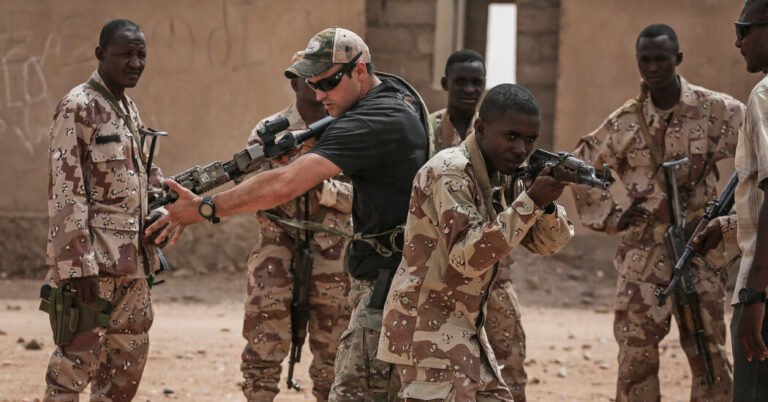
In early April, about 100 Russian instructors and an air-defense system suddenly arrived in Niger. According to Russia’s state-owned news outlet Ria Novosti, the Russian personnel are part of Africa Corps, the new paramilitary structure intended to take the place of the Wagner Group, the military company whose mercenaries and operations spread in Africa under the leadership of Yevgeny V. Prigozhin, who was killed in a plane crash last year.
Niger’s rejection of military ties with the United States follows the withdrawal of troops from France, the former colonial power that for the past decade has led foreign counterterrorism efforts against jihadist groups in West Africa, but which has lately been perceived as a pariah in the region.
Nearly 400 American personnel work at an air base in Niamey, with the remaining 600 at U.S. Air Base 201, a six-year-old, $110 million installation in the remote city of Agadez. Since the coup, the troops in Agadez have been inactive, with most of their MQ-9 Reaper drones grounded except those flying surveillance missions to protect the U.S. personnel.
The loss of the two bases will be a blow to counterterrorism and broader security in the Sahel, American officials acknowledged. Discussions are underway with coastal West African nations like Ghana, Togo and Benin, but the talks are still in the very early stages.
“Those bases were a big advantage to us for our strategic access and influence, and at an operational level as well,” Gen. Michael E. Langley, the head of the military’s Africa Command, said in an interview last month.
It is unclear what access, if any, the United States will have to the base in Agadez in the future, and whether Russian advisers and perhaps even Russian air forces will move in if Niger’s relations with the Kremlin deepen. The joint statement released on Sunday did not mention the fate of the bases.
Ruth Maclean contributed reporting from Dakar, Senegal.